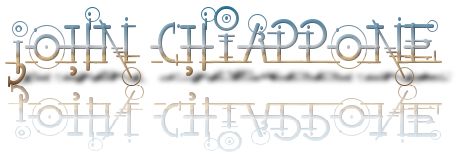|
PHILOSOPHY
The Critique of Pure Reason
(1781 revised in 1787)
Prolegomena to Any Future Metaphysics
(1783)
"I freely admit that the remembrance of David
Hume was the very thing that many years ago
first interrupted my dogmatic slumber and gave a
completely different direction to my researches
in the field of speculative philosophy."
How did David Hume awaken Kant from his dogmatic
slumber?
Hume believed that there were two kinds of
statements. Truths of reason are necessary
because they are true by definition. Then there
are truths known by experience.
Hume saw this as a threat to philosophy because
it isn't a science - or restricted to reason. He
didn't see this as a threat to science; science
just didn't provide necessary truths.
Kant saw deeper implications that threatened
philosophy, science, and even mathematics.
TYPES OF STATEMENTS:
A Priori Proposition:
A proposition whose justification doesn't rely
on experience.
Universal / Necessary Truth
Examples:
All bachelors are unmarried.
"I think; therefore I am."
7 + 5 = 12.
A Posteriori Proposition:
A proposition whose justification relies on
experience.
Contingent Truth / Never Certain
Examples:
All bachelors are unhappy.
Some dogs are black.
Tables exist.
Analytic Proposition:
A proposition whose predicate is contained in
its subject.
The conclusion is contained in the subject.
You don't need to consult experience. They are
true by definition.
There is no problem knowing these propositions.
They are all known a priori.
They don't add to knowledge.
Examples:
All bachelors are unmarried.
All triangles have three sides.
All tricycles have three wheels.
All bodies are extended.
Synthetic Proposition:
A proposition whose predicate is not in its
subject.
The conclusion is not in the subject.
Examples:
All bachelors are unhappy.
All creatures with hearts have kidneys.
All bodies are heavy.
The rose is red.
FOUR TYPES OF PROPOSITIONS:
notes
|
Analytic A Priori |
Known by reason alone
- by extracting the predicate from the
subject. Uncontroversial,
Universal, and Necessary
Example: Physical objects are extended.
Every effect has a cause. |
|
Synthetic A Priori |
True by
the mind's structure.
They
are universal and necessary, yet not
known by experience or logic; the
predicate adds to the subject?
Example: 7 + 5 =
12
Every event has a cause. A straight line
is the shortest distance between two
points. |
|
Analytic A Posteriori
|
Self-Contradictory (They would need to
be, and not be, based on experience.)
Uncontroversial
Example: A waste of time. |
|
Synthetic A Posteriori
|
Known by experience.
Example: Physical objects have weight.
Physical objects fall at 32' per second. |
HOW ARE SYNTHETIC A PRIOIRI PROPOSITIONS POSSIBLE?
There are
things-in-themselves; we can't know them. We
only know appearances. Objects of experience conform to the mind; the mind doesn't
conform to objects. How we experience things
depends on our mental apparatus. He
wasn't concerned with our eyes, ears, nose,
mouth, and skin. It is by the form of experience
that the necessary connections exist that Hume
couldn't fathom.
What is required for any
possible experience?
THE STRUCTURE OF THE MIND
THE FORMS OF SENSIBILITY (sense perception)
How objects are presented to us.
SPACE AND TIME
Space and time are modes of experience; they
don't exist outside of experience. These are
structures of the mind; they mind uses these
structures to organize our sense data. We can
imagine empty space, but we can't imagine
objects without space.
|

A
Sunday Afternoon On The Island Of La
Grande Jatte, by
Georges Seurat
|
THE FORMS OF THE UNDERSTANDING
How we think about objects that are presented to
us.
THE TABLE OF CATEGORIES
| |
Quantity
|
(Unity,
Plurality,
Totality)
|
| |
Quality
|
(Reality,
Negation,
Limitation) |
| |
Relation |
(Substance,
Causality,
Community or reciprocity)
|
| |
Modality |
(Possibility-Impossibility,
Existence-Nonexistence,
Necessity-Contingency) |
| |
SUBSTANCE
Hume was right; there is no underlying
perception for substance, it doesn't exist in
the mind or outside the mind as Lock and
Descartes thought. It is a logical category that
the mind uses to unify objects.
CAUSALITY
Hume was right; there is no underlying
perception for a necessary connect between
events. Causality doesn't exist in the mind or
outside the mind. Again it's a logical category
that the mind uses to understand experience.
THE TABLE OF JUDGMENTS
Quantity
Universal
Particular
Singular
Quality
Affirmative
Negative
Infinite
Relation
Categorical
Hypothetical
Disjunctive
Modality
Problematical
Assertoric
Apodictic
|
